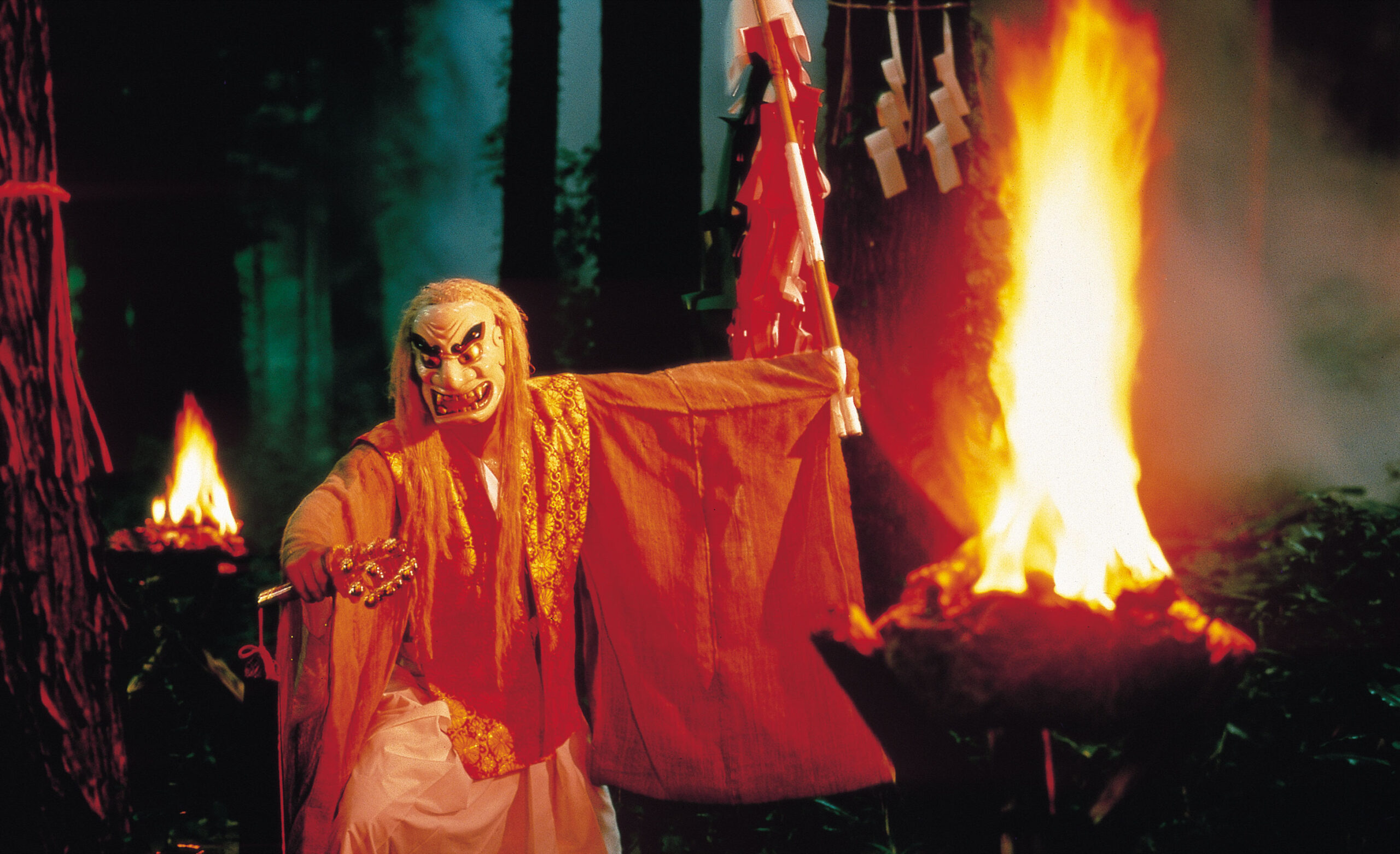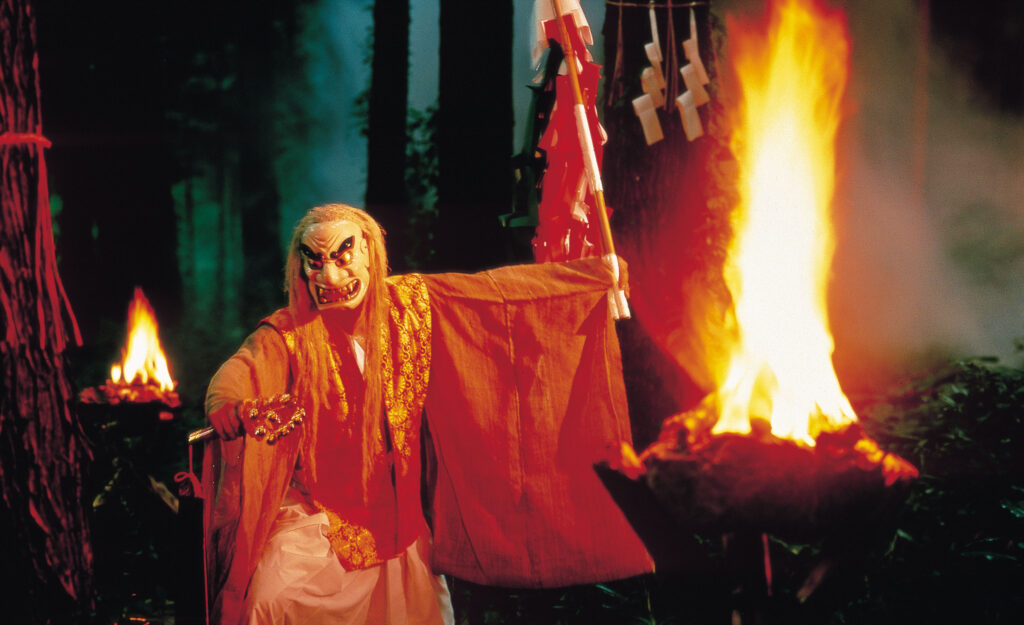Experience Kagura at Takachiho, Kagura Hall

Experience Kagura at Takachiho Shrine’s Kagura Hall
Takachiho Shrine’s Kagura Hall now hosts performances nightly at 8 pm, year-round, for those who cannot attend the local yokagura performances when they are held at the and of the year between November and February.
Yokagura (kagura that is performed in the “yo” meaning night) is a Shinto ritual much like a theatrical dance that lasts from dusk to dawn. It is a Takachiho custom with roots that date back over eight hundred years. and in 1978 was designated a significant intangible folk cultural asset of Japan. While the custom is focused on the local community, interest in the performances from visitors has recently increased. So, in an effort to accommodate this interest and share Takachiho’s heritage, four select performances from the thirty-three-episode repertory are now performed nightly:
The Dances of Tajikarao, Uzume, Totori (Removing the Door), and Goshintai (Embodiment of the Kami)
The first three dances relate to the tale of Amano Iwato (Heavenly Stone Cave) Japanese myth, which starts off with the sun kami deity Amaterasu Omikami shutting herself into a cave in exasperation at her younger brother’s rash behavior. This plunges the world into darkness, and bewildered kami deities of the heavenly realm plot to lure her back out.
● “The Dance of Tajikarao” depicts a kami deity of great strength, named Takajikaro no Mikoto, who, uses various methods to search for Amaterasu before discovering the cave she is hiding in.
● In “The Dance of Uzume,” the kami deity Ame no Usume no Mikoto performs a ribald dance in from of Amaterasu’s cave. This dance makes the gathered kami roar with laughter, and this revelry piques Amaterasu’s curiosity enough that she cracks open the door of the cave to peek out. This dance is said to be the origin of kagura.
● “The Dance of Totori” shows Tajikarao using his great strength to grip the door to the cave and, in the climax, rip it away. Although in the first dance Tajikaro is white-faced and yellow-haired, in this dance he is bright red with effort and his hair has turned jet black.
The last dance, “The Dance of Goshintai,” is a merry performance featuring the divine couple who gave birth to Japan, Izanagi no Mikoto and Izanami no MIkoto. Together they brew sake from fresh rice grains and drink together in matrimonial happiness. This performance serves as a prayer for a happy marriage, a wealth of offspring, and a prosperous harvest. Izanagi and Izanami can also be flirtatious, and they may venture off-stage to bestow blessings upon lucky members of the audience.

